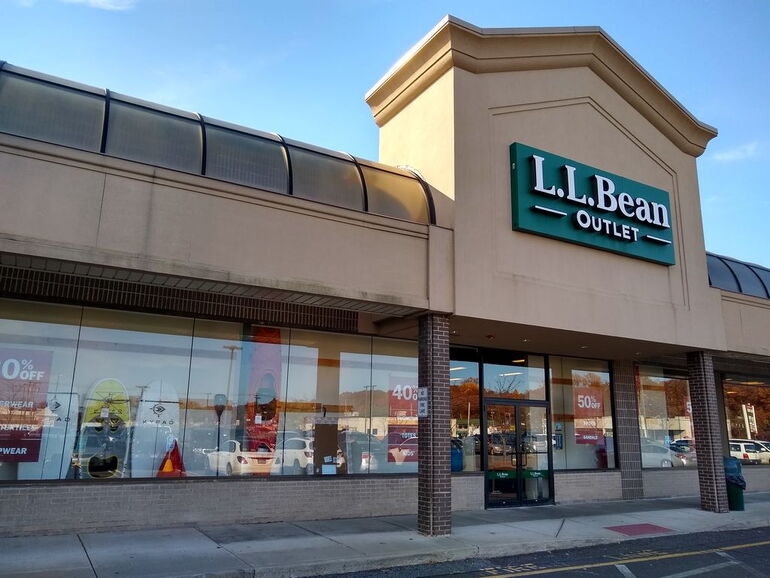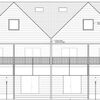Processing Your Payment
Please do not leave this page until complete. This can take a few moments.
- News
-
Editions
View Digital Editions
Biweekly Issues
- April 29, 2024
- April 15, 2024
- April 1, 2024
- March 18, 2024
- March 4, 2024
- February 19, 2024
- February 5, 2024
- January 22, 2024
- January 8, 2024
- + More
Special Editions
- Lists
- Viewpoints
- HBJ Events
- Business Calendar
- Custom Content
Outlet cutbacks claim L.L. Bean store in Orange
 Photo | Liese Klein
The L.L. Bean outlet store in Orange, slated to close in mid-January.
Photo | Liese Klein
The L.L. Bean outlet store in Orange, slated to close in mid-January.
The duck boots, down jackets and fleeces were discounted and the aisles were bustling on a recent weekday at the L.L. Bean outlet store in Orange. But a customer at the cash register paused in the middle of his transaction to offer condolences to the clerk — the store is closing in mid-January after 11 years in business.
“Annually, we conduct a comprehensive review of our portfolio of stores across the country and through an evaluation that takes into consideration many factors, we form the basis for store opening and closing decisions,” L.L. Bean spokesman Mac McKeever said. The Orange store’s need for a major facelift and its proximity to the retailer’s new location in New Haven were other factors in the decision, he added.
The approximately 20 employees in Orange were told of the closing this summer and given a chance to apply for work at other locations: L.L. Bean stores remain in New Haven, at the Danbury Fair Mall and in South Windsor. “We have no plans to close any other Connecticut store,” McKeever added.
L.L. Bean is the latest in a series of retailers announcing store closings in the Orange retail corridor on the Boston Post Road in recent months. Lowe’s announced plans to shut down its 130,000-square-foot home improvement center on Jan. 13, and Mattress Firm and Sam’s Club stores are also expected to close.
But L.L. Bean’s decision to shut down may be more a result of corporate strategy than the brick-and-mortar sector’s overall woes. The Freeport, Me.-based company has closed down most of its outlet stores around the country in recent years in favor of full-price locations. L.L. Bean outlets remain in only three locations each in New Hampshire and Maine, and single outlets in both Wareham, Mass., and Lake George, N.Y.
As outlets close, L.L. Bean is opening new stores like the one that debuted this summer on Elm Street in New Haven, which showcases full-price merchandise in a stylish and compact setting. Items are are artfully arranged over two floors that add up to only 9,000 square feet. Earlier this year, a similar store was opened in Boston, the first L.L. Bean in the city limits.
By contrast, the Orange outlet store features drab carpeting with merchandise squeezed into racks sprawling over 13,000 square feet. New clothing is mixed in with worn and well-used items, byproducts of L.L. Bean’s legendarily generous return policy.
L.L. Bean is not the only retailer to pull back from outlet stores in the past decade, with Boston-based Reebok closing outlets, following the lead of Oneida, Neiman Marcus, Kenneth Cole and Jones New York.
Some outlet centers are also struggling: Major player Tanger sold its outlet center on I-95 in Westbrook in 2017, citing slumping sales.
Although some customers love bargain-hunting, outlets are not immune from the pressures facing other brick-and-mortar stores, analysts say.
"What is occurring is that the brand is knocking off its own product," according to Steve Montgomery, president of B2B Solutions, who was quoted on the subject of outlets in RetailWire.com. "While that may be good for short-term sales and profits, the longer-term impact is a lessening of the brand’s value. Once this occurs then the appeal of the outlet mall is diminished and its fate may be the same as the regular malls."

2022 Giving Guide
This special edition informs and connects businesses with nonprofit organizations that are aligned with what they care about. Each nonprofit profile provides a crisp snapshot of the organization’s mission, goals, area of service, giving and volunteer opportunities and board leadership.
Learn more
Subscribe
Hartford Business Journal provides the top coverage of news, trends, data, politics and personalities of the area’s business community. Get the news and information you need from the award-winning writers at HBJ. Don’t miss out - subscribe today.
Subscribe
2024 Book of Lists
Delivering Vital Marketplace Content and Context to Senior Decision Makers Throughout Greater Hartford and the State ... All Year Long!
Read Here-
2022 Giving Guide
This special edition informs and connects businesses with nonprofit organizations that are aligned with what they care about. Each nonprofit profile provides a crisp snapshot of the organization’s mission, goals, area of service, giving and volunteer opportunities and board leadership.
-
Subscribe
Hartford Business Journal provides the top coverage of news, trends, data, politics and personalities of the area’s business community. Get the news and information you need from the award-winning writers at HBJ. Don’t miss out - subscribe today.
-
2024 Book of Lists
Delivering Vital Marketplace Content and Context to Senior Decision Makers Throughout Greater Hartford and the State ... All Year Long!
ABOUT
ADVERTISE
NEW ENGLAND BUSINESS MEDIA SITES
No articles left
Get access now
In order to use this feature, we need some information from you. You can also login or register for a free account.
By clicking submit you are agreeing to our cookie usage and Privacy Policy
Already have an account? Login
Already have an account? Login
Want to create an account? Register
Get access now
In order to use this feature, we need some information from you. You can also login or register for a free account.
By clicking submit you are agreeing to our cookie usage and Privacy Policy
Already have an account? Login
Already have an account? Login
Want to create an account? Register






0 Comments